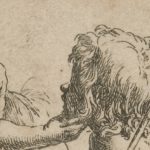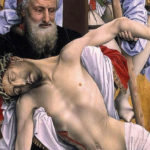
That God wants us to live practically is clear from Scripture – in general satisfaction with human experience during our earth sojourn. Issues of health, family, work, aspiration, orientation (physical and/or spiritual) are addressed with implications of blessings (affirmatives) and curses (negatives) as part of the course for daily living – the Ebals and Gerizims of life. From Mounts Ebal and Gerizim, Israel’s tribes shouted blessings and curses, and with acknowledgments between them of what it was that each had shouted. (Deuteronomy 27:11-47) It was the end time for Moses. On the conclusion of that event, he died. The extent and balance of these inevitable life accompaniments (affirmative and negative factors) are interpreted differently. They are neutral in themselves, but… Read more






